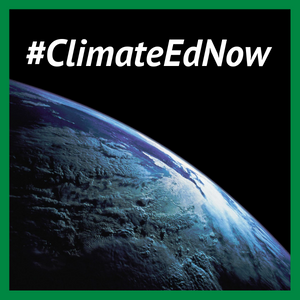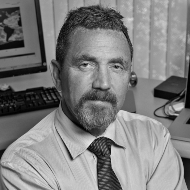Unfortunately, there are no short cuts to expertise. One cannot magically assimilate deep understanding of the complex climate system simply by reading a few blog posts or watching Fox News. Understanding climate requires basic knowledge of physics, chemistry, and biology. You need some familiarity with meteorology and oceanography. Mathematics and statistics allow you to follow how scientists separated a human-caused global warming “signal” from the background “noise” of natural climate variability.
It’s also helpful to learn about the nature of science itself. How does one use computer models and actual data to test multiple hypotheses about cause-and-effect relationships in the climate system? Can we use models to make testable predictions about climate change? (Spoiler alert: the answer is “yes”). Do scientists routinely kick the tires and consider the impact of key uncertainties on their findings? (Spoiler alert: the answer is another big “yes”).
And before claiming expertise, it sure is good to know something about the history of climate science. Who were the early pioneers? What did they do? What were their insights? Did their discoveries help us to understand how Earth’s climate evolved over geological time? Does the arc of history bend towards increased understanding of the reality and seriousness of human effects on climate?
These are not purely academic questions, of interest to a small number of experts. They are questions that should concern everyone living on our planet.
This brings me back to the title of the essay. Why teach climate science? Our collective future looks bleak if students do not understand how and why Earth’s climate is changing — if they cannot discriminate between credible and untrustworthy sources of information; if they do not understand the arc of history, and how science works. Without an informed, scientifically savvy electorate, our country will be poorly positioned to solve the problem of human-caused climate change, and to elect leaders who truly care about solutions to the problem.
Today’s students are tomorrow’s leaders. It’s our job to prepare them for that leadership role, and to give them the scientific tools they need to be successful. We must not fail them.
Read other essays from our #ClimateEdNow series.

 Except for a few temporary occupants of the International Space Station, we all live on Earth. We all inhabit the same thin shell of atmosphere — a shell that sustains life. Increasingly, this thin sliver of life-giving atmosphere is being affected by human actions. We burn fossil fuels, releasing heat-trapping greenhouse gases, thereby warming the lower atmosphere, the oceans, and the land surface. We cut down vast swathes of tropical and temperate forests, changing local and even regional climates, perturbing the uptake and release of carbon by the biosphere. Our cars and factories produce soot and sulfate particles that pollute the air we breathe. Some of our chemicals affect the stratospheric ozone layer, an invisible shield that protects us from harmful ultraviolet radiation.
Except for a few temporary occupants of the International Space Station, we all live on Earth. We all inhabit the same thin shell of atmosphere — a shell that sustains life. Increasingly, this thin sliver of life-giving atmosphere is being affected by human actions. We burn fossil fuels, releasing heat-trapping greenhouse gases, thereby warming the lower atmosphere, the oceans, and the land surface. We cut down vast swathes of tropical and temperate forests, changing local and even regional climates, perturbing the uptake and release of carbon by the biosphere. Our cars and factories produce soot and sulfate particles that pollute the air we breathe. Some of our chemicals affect the stratospheric ozone layer, an invisible shield that protects us from harmful ultraviolet radiation.